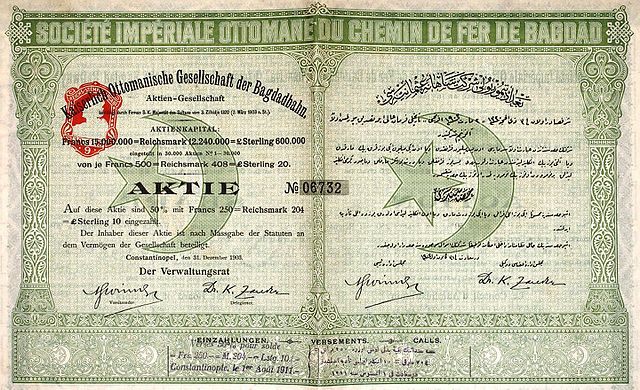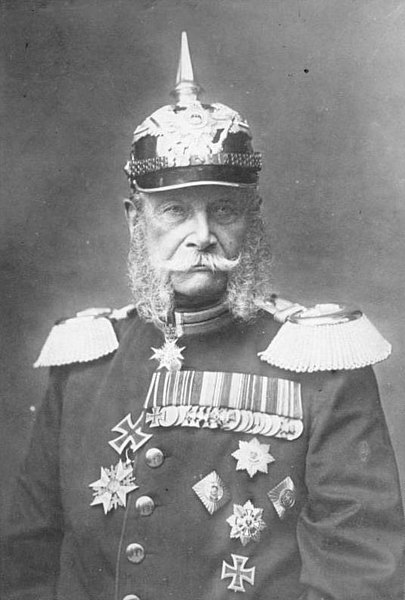The Baghdad railway, also known as the Berlin–Baghdad railway, was started in 1903 to connect Berlin with the then Ottoman city of Baghdad, from where the Germans wanted to establish a port on the Persian Gulf, with a 1,600-kilometre (1,000 mi) line through modern-day Turkey, Syria, and Iraq.
Baghdad railway c. 1900–10
Share of the Baghdad railway, issued 31 December 1903
Central Station in Adana, Turkey, 1913
Baghdad Central Station, 2012
The German Empire, also referred to as Imperial Germany, the Second Reich or simply Germany, was the period of the German Reich from the unification of Germany in 1871 until the November Revolution in 1918, when the German Reich changed its form of government from a monarchy to a republic.
The German colonial empire in 1914
Chancellor Bismarck
Wilhelm I in 1884
Die Proklamation des Deutschen Kaiserreiches by Anton von Werner (1877), depicting the proclamation of Emperor William I (18 January 1871, Palace of Versailles). From left, on the podium (in black): Crown Prince Frederick (later Frederick III), his father the emperor, and Frederick I of Baden, proposing a toast to the new emperor. At centre (in white): Otto von Bismarck, first Chancellor of Germany, Helmuth von Moltke the Elder, Prussian Chief of Staff.








